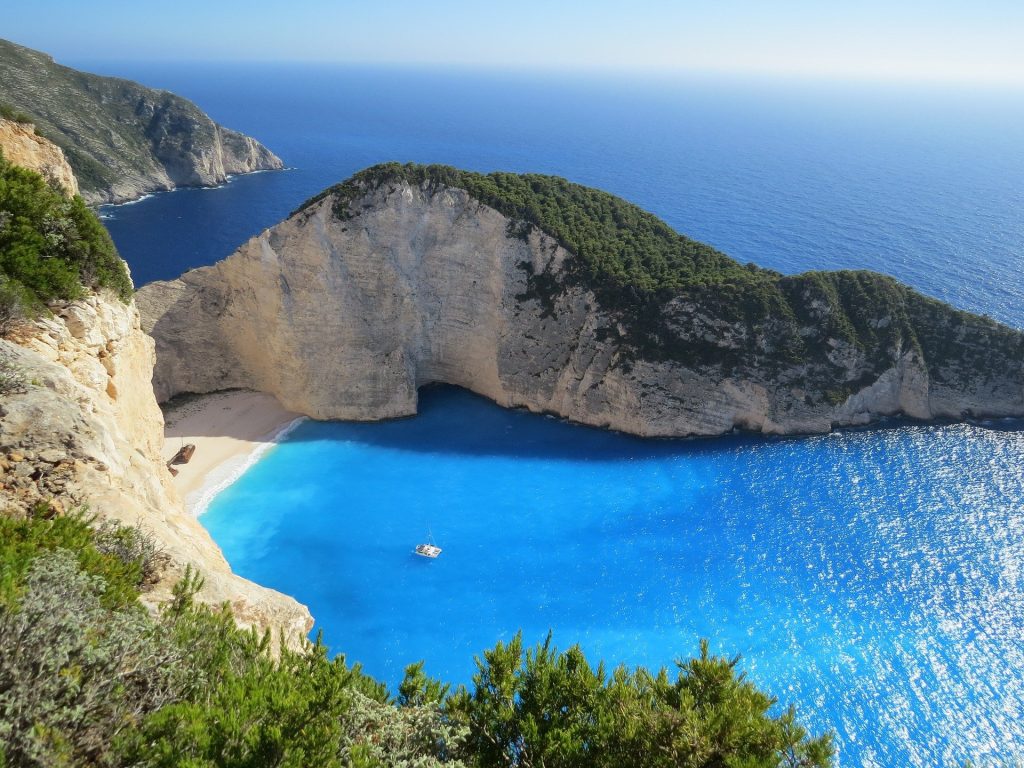What is Travel Fatigue and Jet Lag
The transient disruption of circadian rhythm is called jet lag. Jet lag is manifested as weariness, drowsiness, and decreased appetite. When the body’s internal clock diverges from the destination’s time zone, it may result in jet lag.
To reduce the effects of jet lag travelers might include pre-flight and post-arrival routines with other tactics. The body may be acclimated to the new time zone by taking supplements or utilizing specialist applications, changing sleep habits, and choosing the right trip. You may easily handle time zone changes and have a more pleasurable and refreshing trip by being aware of and using these coping mechanisms.
Causes and Symptoms
Jet lag is a complex phenomenon that disrupts the body’s circadian rhythm (1), disrupting the sleep-wake cycle. It results from the body’s natural processes and the temporal dissonance experienced during travel across time zones. The symptoms of jet lag extend beyond physical fatigue, including insomnia, irritability, concentration difficulties, and digestive disturbances (2).
The effects of jet lag can be severe and challenging. Understanding the causes and symptoms of jet lag is essential to identify the potential of herbal remedies as a natural solution. By understanding how jet lag impacts the body, one can better appreciate the potential of herbal interventions to restore balance and alleviate the symptoms associated with this complex phenomenon.
Impact on the Body’s Circadian Rhythm
The body’s circadian rhythm, akin to an internal conductor orchestrating the symphony of the sleep-wake cycle, operates with remarkable precision, cycling through its 24-hour rhythm. Jet lag disrupts this intricate harmony as the body swiftly acclimates to a new time zone. This disruption culminates in a transient misalignment between the internal body clock and the external environmental cues, resulting in disturbances that echo through various facets of well-being, prominently marked by sleep disturbances and heightened fatigue.
You may also like – How to Get Your Best Sleep
Herbal remedies emerge as more than mere remedies; they represent a therapeutic bridge, aiding the body in navigating this dissonance and orchestrating a harmonious reunion with its innate circadian rhythm. This holistic approach becomes paramount to alleviating and counteracting the multifaceted effects of jet lag and the ensuing travel fatigue (1).
Herbal Remedies for Jet Lag
Embarking on a journey to combat jet lag and travel fatigue naturally brings us to the realm of herbs—nature’s resilient allies that promote balance within the body and have many other benefits. The types of herbs that can be used to counteract jet lag include:
Adaptogenic Herbs
- Rhodiola Rosea:
Rhodiola rosea is a traditional herb that aids in stress reduction and endurance. Its history in conventional medicine supports its use as a natural remedy for fatigue and body balance, and its relevance in contemporary wellness reinforces the holistic healing power of herbs (3).
- Ashwagandha:
Ashwagandha, a traditional plant with adaptogenic qualities, has been utilized in alternative medicine for centuries. It eases the transition to new time zones and boosts resilience while lowering stress levels for contemporary travelers (4).
Relaxing Herbs
1. Chamomile
Chamomile is a traditional plant used to cure eczema, sleeplessness, and wounds. Due to its relaxing qualities, it is a popular tea that aids in stress reduction and relaxation. Because of its sleep-promoting properties, chamomile is a well-liked natural relaxing aid (5).
2. Valerian Root
Valerian root is an all-purpose natural medicine that reduces tension and encourages relaxation. Since it includes soothing ingredients, it’s perfect for those with trouble relaxing or managing anxiety. Valerian root is often a mild but potent remedy in herbal drinks and supplements (6).
Energizing Herbs
1. Ginseng
The potent herb ginseng has adaptogenic qualities and is well-known for enhancing energy, mental clarity, and general health. It may be drunk as a tea or supplement and has been used in traditional medicine for generations.
2. Peppermint
Peppermint is an herb that has energizing properties and a very refreshing aroma and flavor. The menthol present in peppermint has been linked to increased alertness and improved cognitive function[6]. Whether enjoyed as a refreshing tea or incorporated into recipes, peppermint is a natural and delightful way to enhance energy levels and focus.
How Herbs Work
Herbs known as adaptogens—eleuthero, ginseng, Rhodiola, and ashwagandha—help the body adjust to stimuli by boosting endurance and resilience and promoting general well-being.
- Mechanisms of Relaxation and Stress Reduction
Herbs that promote relaxation and stress reduction, such as valerian root, Tulsi, and chamomile, benefit mental health and general well-being. They could have adaptogenic properties or affect neurotransmitters, which would help promote a more stable mental state.
- Boosting Energy Naturally with Herbal Remedies
Herbal medicines that fight weariness and increase energy include peppermint and ginseng. Because of their energizing scent and adaptogenic qualities, these herbs may be contained in everyday routines to provide a natural, consistent energy source without chemical stimulants.
Adaptogens and other herbal remedies offer significant benefits, such as promoting balance, managing stress, and boosting energy levels through nature’s healing power.
Incorporating Herbal Remedies into Your Routine
Incorporating herbal remedies into your travel routine can be transformative in pursuing holistic well-being.
A. Pre-travel Preparations
- Creating a Herbal Travel Kit: For anti-inflammatory and digestive properties, include turmeric, sage, rosemary, and cinnamon in a customized herbal travel pack to enhance well-being while traveling.
- Timing of Herbal Supplements: Before your trip, establish a regimen for taking herbal supplements to enhance their therapeutic benefits and aid in your body’s natural functions.
B. In-flight Strategies
- Herbal Teas and Infusions: Embrace the soothing properties of herbal teas during flights. Chamomile, ginger, or lavender teas can help alleviate stress, support digestion, and provide a calming effect, enhancing the overall travel experience.
- Aromatherapy with Essential Oils: Utilize aromatherapy techniques like lavender or eucalyptus to enhance relaxation, reduce anxiety, and create a pleasant cabin environment.
C. Post-travel Recovery
- Herbal Baths and Relaxation Techniques: Using herbal baths, such as chamomile or lavender, can help post-travel recovery by promoting relaxation, reducing muscle tension, and enhancing overall body health.
Including herbal treatments in your vacation regimen improves your environment and health, making for a rejuvenating and well-rounded trip.
Lifestyle Tips for Combating Jet Lag
- Sleep Hygiene
Minimizing jet lag impacts requires a regular sleep schedule, a comfortable sleeping environment, and avoiding stimulants like caffeine right before bed.
You may also like – 11 Natural Sleep Aids and Home Remedies
- Adjusting to New Time Zones
Adjust your sleep schedule, exposure to natural light, and low-dose melatonin supplements before your trip to align your internal clock with the destination’s time zone.
- Proper Hydration and Nutrition During Travel
To combat travel fatigue, maintain optimal hydration levels and nourish your body with proper nutrition. Drink water consistently and consider herbal teas with calming properties like chamomile or ginger for relaxation.
These lifestyle tips can enhance your travel experience and mitigate jet lag.
Conclusion
In conclusion, avoid caffeine, establish a comfortable resting environment, and practice good sleep hygiene to combat jet lag. By adjusting sleep schedules, getting outside in the light, and using low-dose melatonin tablets, one can acclimate to new time zones. For a more holistic vacation experience, include adaptogenic remedies like ashwagandha and Rhodiola rosea in your herbal teas for their relaxing benefits.
Notes & Sources
1. Ambesh P, Shetty V, Ambesh S, Gupta SS, Kamholz S, Wolf L. Jet lag: Heuristics and therapeutics. J Fam Med Prim Care. 2018;7(3):507–10.
2. Choy M, Salbu RL. Jet Lag. Pharm Ther. 2011 Apr;36(4):221–31.
3. Pro M. Mind Lab Pro®. 2022 [cited 2024 Jan 29]. Nootropics for Jet Lag – Optimize Your Brain to Stay Productive During and After Travel. Available from: https://www.mindlabpro.com/blogs/nootropics/nootropics-jet-lag
4. Pokarowski M, Kedra M, Piwinska J, Kurek K, Szczygiel K, Denysiuk P, et al. The Relationship between Knowledge, Dietary Supplementation, and Sleep Quality in Young Adults after the COVID-19 Pandemic. Nutrients. 2023 Jul 28;15(15):3354.
5. Srivastava JK, Shankar E, Gupta S. Chamomile: A herbal medicine of the past with bright future. Mol Med Rep. 2010 Nov 1;3(6):895–901.
6. Shinjyo N, Waddell G, Green J. Valerian Root in Treating Sleep Problems and Associated Disorders—A Systematic Review and Meta-Analysis. J Evid-Based Integr Med. 2020 Oct 21;25:2515690X20967323.




